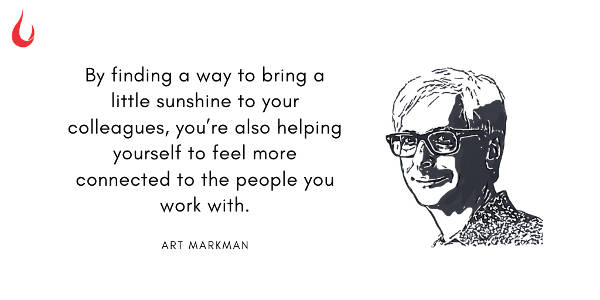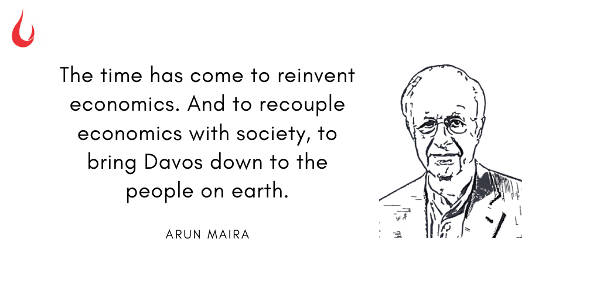[Image by Alexas_Fotos from Pixabay]
Good morning,
In Collaborating with the Enemy: How to Work with People You Don’t Agree with or Like or Trust, Adam Kahane says to solve complex problems, conventional collaboration is not enough. We need to stretch ourselves.
“Our conventional understanding of collaboration is that it requires all to be on the same team and headed in the same direction, to agree on what has to happen and make sure this happens, and to get people to do what needs to be done. In other words, we assume that collaboration can and must be under control. Conventional collaboration looks like a planning meeting.
“But this conventional assumption is wrong. When we are working in complex situations with diverse others, collaboration cannot and need not be controlled.
“Unconventional, stretch collaboration abandons the assumption of control. It gives up unrealistic fantasies of harmony, certainty, and compliance, and embraces messy realities of discord, trial and error, and cocreation. Stretch collaboration looks like martial arts practice. Stretch collaboration enables us to get things done even in complex situations with people we don't agree with or like or trust.”
In these polarised times, the easiest thing is to dismiss the other side using different kinds of labels. But, if we have to get things done, solve complex problems, we have to learn to work with people we don’t like or even trust. Movies such as Clint Eastwood’s Invictus (Morgan Freeman playing Nelson Mandela), Steven Speilberg’s Lincoln (Daniel Day-Lewis playing the lead role) have powerfully communicated the idea. However, the key is to really put this idea into practice.
As Kahane puts it: “Stretching does not make this work disappear; it just enables one to do it with less fear and distraction and more connection and awareness. The proverb says, ‘Before enlightenment, chop wood, carry water. After enlightenment, chop wood, carry water.’ After enlightened stretching, we still have our work to do, but now we have a better chance of doing it successfully.”
Wish you a great week ahead.
Schedule time for friends
Ashwini Asokan, founder & CEO of Vue.ai and Mad Street Den, recently tweeted, “we are social beings. Even the most introverted of us, in our own ways. There are ton of advantages bringing work-home together. But we’ve got to find middle ground, best of both. If not, we’re becoming that world that thinks putting a kindergartner in front of zoom is education.”
One of the biggest casualties of working from home has been social interactions. And since WFH might continue to be the norm for many, it’s important to find out ways to form and strengthen friendships even under these constraints.

Art Markman, professor of psychology and marketing at the University of Texas at Austin, in an essay in Fast Company says it’s “important to try to negotiate a little time to spend with colleagues to get to know them as people. That will pay dividends later in your productivity and commitment to work.”
Here are two more tips from Markman
- Try to use your real or virtual background in video meetings to provide some clues to your identity. If you’re using a virtual background, select pictures that say something about your interests or hobbies.
- See if you can find a nice way to do something nice and unobtrusive for your colleagues. It might be as simple as noticing something they did well at the office and sending them a quick message of appreciation or congratulations.”
Reinvent
In his latest Founding Fuel essay, Arun Maira contrasts the two views of economics: the World Economic Forum view, represented in India by Jagdish Bhagwati and Arvind Panagariya; and the World Social Forum at Porto Allegro, represented in India by Amartya Sen and John Dreze. With the Covid-19 crisis, Maira writes, “a searching has begun for a new paradigm, to replace the one that was neither resilient nor just, which has dominated economic policies for the past thirty years.” Are we getting there?

Maira writes: “Paradigms change when new voices with new ideas enter the public discourse, like little shoots of green grass from beneath an encrusted frost. Through the end of the Covid tunnel, with the Overton window opening wider, I can see the shape of a new economy more clearly. An economy which must be more resilient and more just; more local than global; more community than market. An economy in which humans are humbler about their place within the natural environment that nurtures them.”
Get enough sleep

(Via WhatsApp)
How do you ensure you sleep enough? Share your tips with us via mail. Or share it on Twitter and tag us @foundingf
And if you missed previous editions of this newsletter, they’re all archived here.
Bookmark Founding Fuel’s special section on Thriving in Volatile Times. All our stories on how individuals and businesses are responding to the pandemic until now are posted there.
Warm regards,
Team Founding Fuel


